Linking Up the World of Coworking
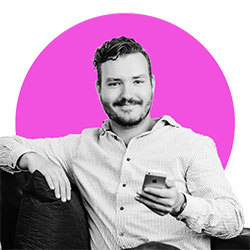
These days, Liz Elam is a household name in the coworking industry. As the Executive Producer and Founder of GCUC (The Global Coworking Unconference Conference) since 2011, she's produced and co-produced 26+ coworking conferences all over the world, from New York to Beijing and London to Sydney. She is the founder of Link Coworking, which she recently sold to Common Desk. Liz is also a Partner at Deco Group, a global coworking consulting firm.
A Great Idea Gets Tucked Away
Liz first experienced flexible working back in 1999.
"I was a brand new field sales rep for Dell in Atlanta," Liz told me. "And there was a gentleman who was showing me the ropes. He'd booked us a meeting at a business center in downtown Atlanta. So we went to this place, and it had these dark mahogany walls, and there was a well-dressed man with white gloves that greeted us."
Liz hadn't seen or experienced anything like it before. "It was very formal and awkward. Honestly, it was weird."
“And so I said to my colleague,” Liz continued, “‘what is this place?’ He told me it was a business center and that there was a network of them all around the country that you could just drop into. I thought it was an interesting idea, but the experience of the place made me feel super uncomfortable.”
A short while later, while staying at a W Hotel in New York City, Liz needed to get some work done. As one naturally would, Liz headed down the lounge to set up shop. It was then that she noticed the vibe and atmosphere of the place. It was near happy hour time. Other people were hanging out, drinking cocktails, and also working. "And I was like, ‘Huh, you know, if we could marry that business center with the W Hotel lobby, that would be a really cool place to work."
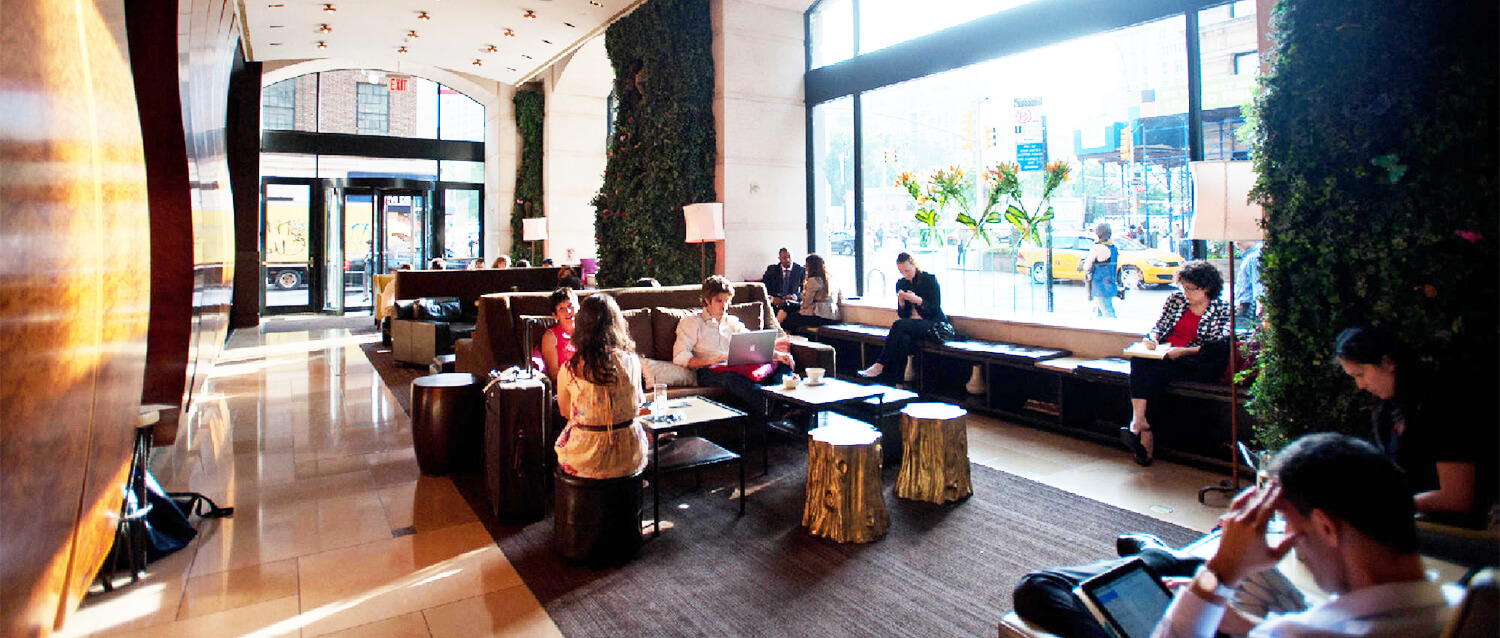
But Liz wasn’t ready to give up her job at Dell. She enjoyed the work and was getting paid well. So she put the idea away and continued with her sales job. However, as many of us in the coworking world know, our burgeoning passions don’t stay quiet when we keep ignoring them.
A Moment of Clarity
A few years later, in 2007, Liz was at a sales field readiness seminar, an event where Dell reveal what their sales representatives are going to sell that year. Michael Dell himself, Founder and CEO of Dell Technologies, was on stage speaking to the crowd of eager sales reps.
"I was looking at Michael Dell," Liz said, "and I was thinking, you know, I want to be the person on stage. And I physically looked down at my lap, and I looked back up at Michael, and I realized that he would never sit here. He would never sit here and do what somebody else was telling him to do."
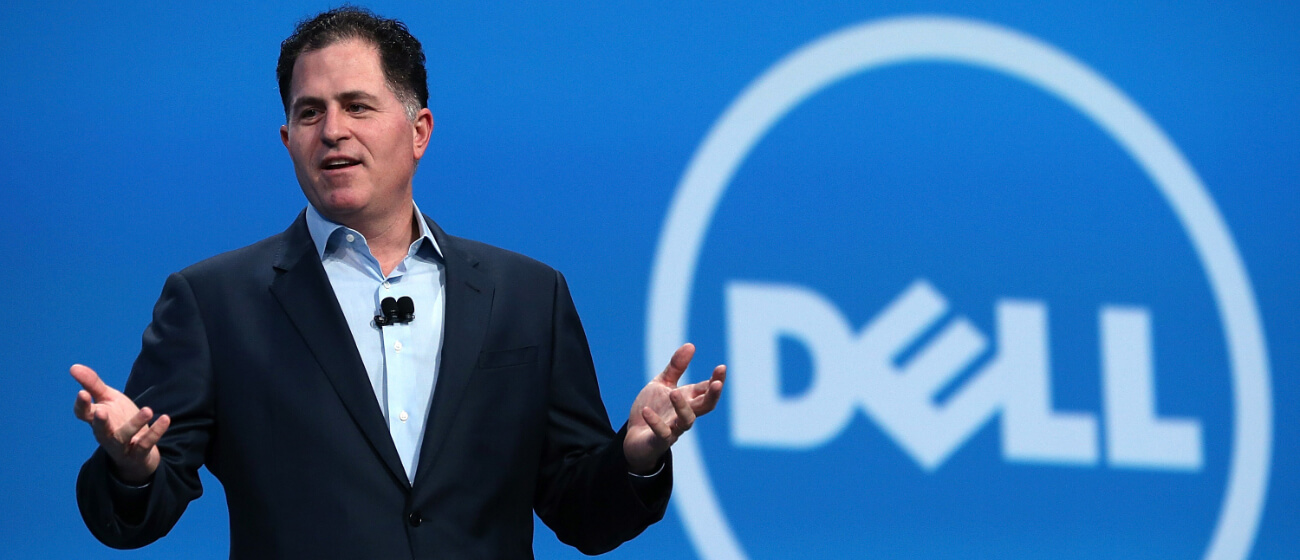
And in her moment of clarity, Liz realized that if she didn't do something drastic, she'd not only be doing herself a disservice but that she'd have let a part of her fade away, possibly forever.
“So I turned to my really good friend Patrick,” Liz told me, “and I said, ‘I'm going to quit.’ And he said the perfect thing back to me. He said, ‘no, you're not.’ And so I had to quit because I’d been challenged.”
That single event kicked off a chain of events that would change Liz’s life, as well as the lives of many others, possibly for decades to come.
The Wild West Era of Coworking
The American pioneers journeyed westward for fame, fortune, and freedom. But they didn't have much to go on. The best they could do was prepare for the worst and hope for the best, all the while letting their vision for a better future guide them to the "promised land."
In fact, there are pioneers in every industry and from all places in time, but their motivations and journeys seem to mirror one another. Such is the case for coworking pioneers like Liz.
In 2011, there were only about 500 coworking spaces in the entire world. There were no manuals, there weren't any coworking conferences, and workspace management software was just getting out of the gate.
But as any good pioneer would, Liz muddled through anyway.
"I got on a plane, and I went to LA," Liz said, "and I visited with Jerome Chang from Blank Spaces. I flew up to New York and saw a space there. Same with New Orleans. And I went to every space in Texas. It was a really good journey because it taught me a lot about what works and what didn't work. Like when you walk into a space, how are you greeted? What was the flow like? Who gives you the tour? It was great to see that for myself." It’s a similar lesson learned by other coworking influencers such as Tobias Kremkau of St. Oberholz in Berlin and Anthony Gutman of Remix Coworking in Paris.
"But then I went into full-on analysis paralysis," Liz continued. "I wrote and rewrote my business plan about 17 times, partially because there wasn't a lot of data then. I was doing a lot of my modeling based on gyms, but I knew it wasn't the same thing. So I was just, you know, afraid to take the leap because coworking was in such uncharted waters."
Liz had been meeting with the mentors at her local SCORE (the Service Core of Retired Executives) office. SCORE is an organization which connects experienced business executives with those hoping to start their own businesses. Liz wanted feedback on her business plan, but in reality, she was using the meetings as a crutch or to get some form of permission to launch. And whether she needed that permission or not, she got it.
“I was on revision 17 of my business plan,” Liz recalled, “and I had some accounting questions. At one point, this dude turned and looked me in the eye and said, ‘Liz, just fucking do it.’”
That was 2010, the year when Liz finally leaped. She signed a lease on retail space in Austin, Texas, and Link Coworking was born.
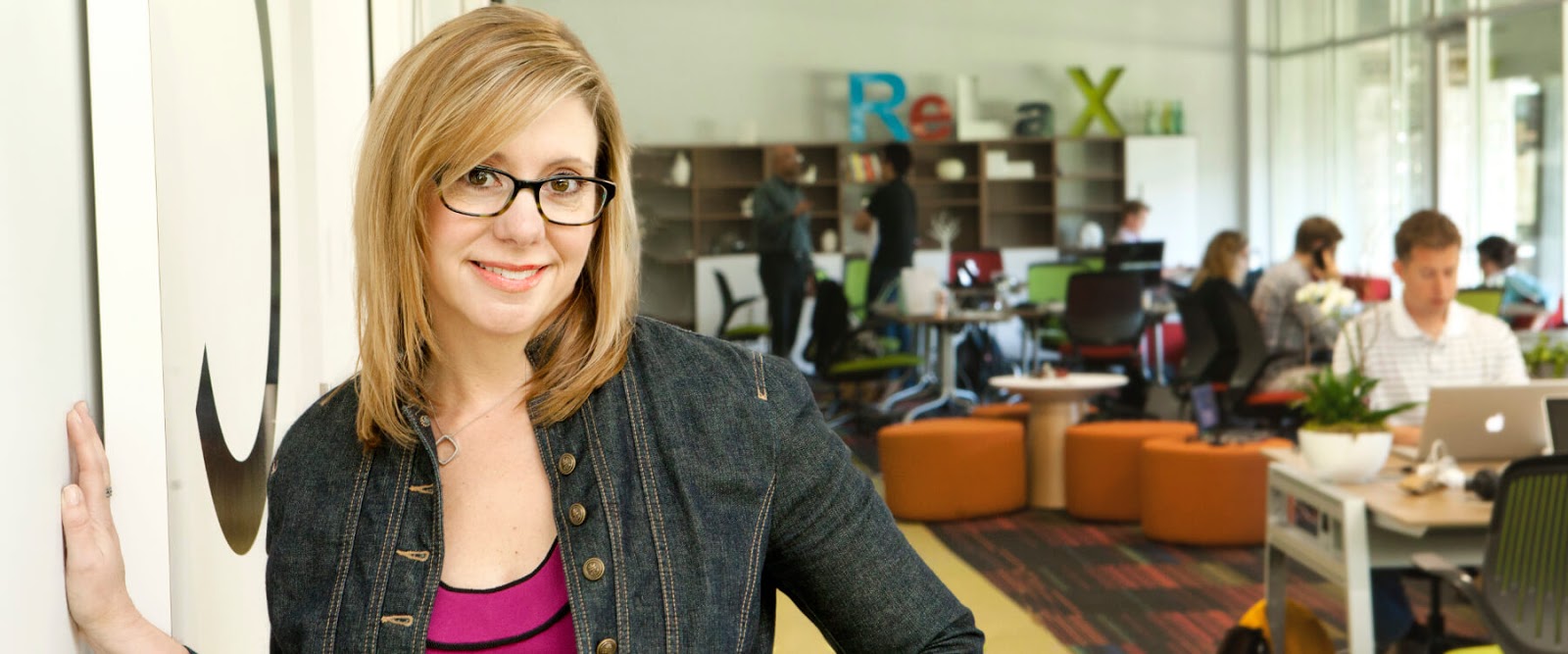
Coworking Spaces Are Like Newborns
Let it be known that I have no idea what it's like to have a newborn child. Although, I'm betting that running a new coworking space comes in a not-too-distant place in the hierarchy of things which take over one's entire life. The thing is, though, babies are reasonably mobile. You can up and move to another country with a baby if you want to. But your new coworking space isn't going anywhere. It's a metaphorical ball and chain that ties new coworking founders to one place for at least the first year, if not longer.
"I was really running Link by myself for the first couple of years," Liz says, "and I was here every day. And if there was an event, I was here at night, plus I was going to networking events. It took a toll on me personally because I was just being superwoman every day."
What’s more, Liz was barely breaking even. “I had bought into the idea that you weren’t a real coworking space if you had offices, so I only had open coworking. And people were leaving because I didn’t have dedicated desks or offices.”
This meant that, even though the community was strong (likely because of Liz’s very active role in the Austin community), she was experiencing far more churn than she’d like. Liz realized her adherence to traditional coworking dogma had a fatal consequence: she couldn’t make money.
But Liz had a plan.
Never miss a beat!
Want to see it in action?
“I had been eyeing a space across the courtyard for myself for two years. Finally, I went in and just pulled the trigger,” Liz says. “That’s where I built out my second space, which was all dedicated desks and offices. I also put a system on it so I wouldn't have to open and close the door. So it could have 24/7 access, 365. And that's really what turned it around because that produced really good and steady income.”
Keep Moving No Matter What
As things began to shape up for Liz and Link Coworking, not everybody was convinced that Liz could pull it off. From the beginning, critics weighed in on Liz’s business model and execution, but she did her best to tune it out.
“I remember one gentleman in particular who never joined,” Liz told me. “He had lots of opinions, was very vocal, and was very prevalent on social media at the time. One day he came back to me after I had been open for two years and said, ‘I never thought you were gonna make it. I thought your model was all wrong. And you proved me wrong.’ That was so satisfying.”
I think we can learn something valuable from Liz’s example. No matter what you’re doing, starting something new and untested invites unconstructive criticism from people who aren’t in the hot seat. Ignore them! Don’t let them slow you down. You have to think on the move. You must anticipate what’s coming next and be quick on your feet, all without stopping. There’s simply no time for naysayers.
Going Global
It was likely that forward-thinking mentality that drove Liz to connect eagerly with other coworking founders around the world. And it was that perspective which eventually led Liz to produce the world’s largest coworking conference, GCUC.
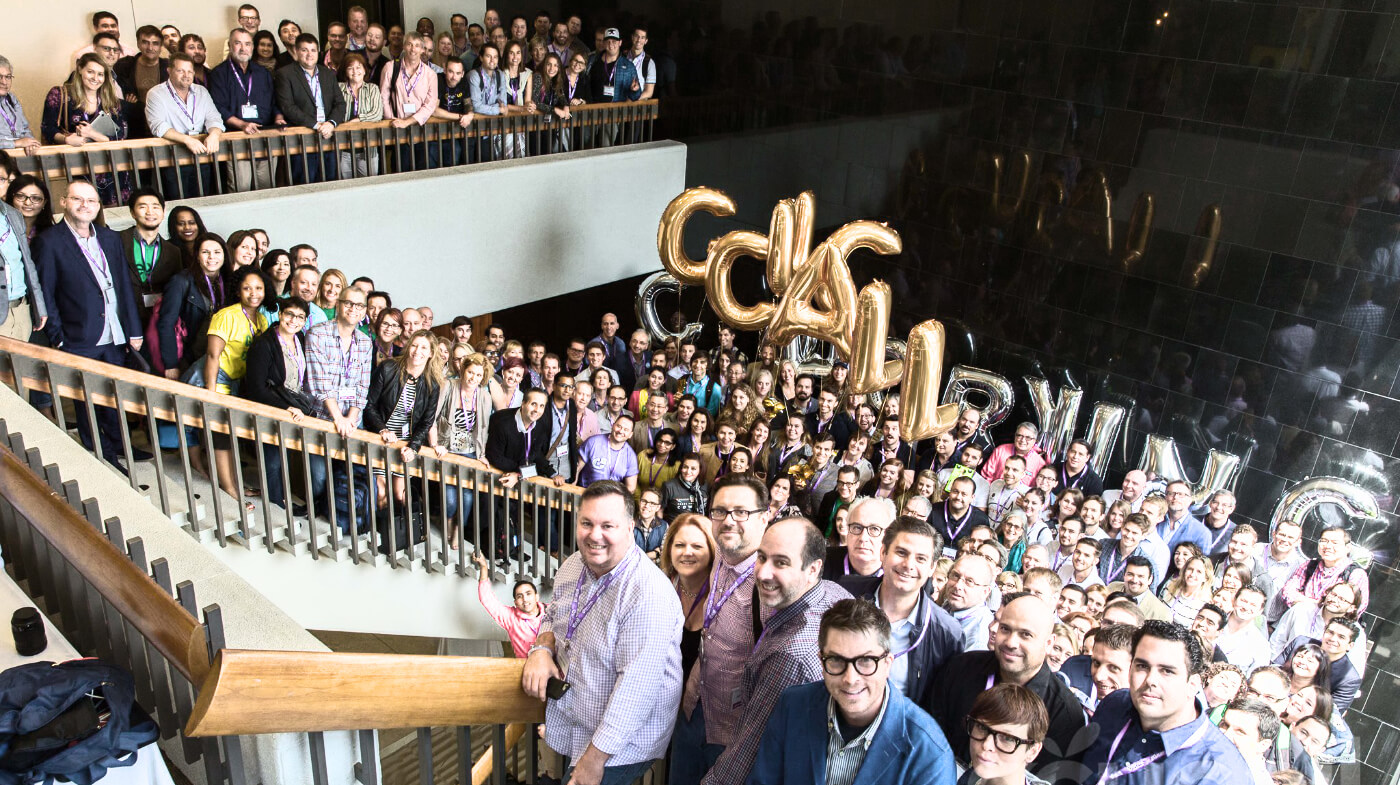
"So in 2011, the now-defunct Loosecubes put together a half-day unconference in Austin," Liz said. "I'd never been to an unconference before. I didn't even know what it was. But they stopped by Link and told me about it."
Excited by the prospect of reconnecting with coworking friends she’d met at the prior year’s event, Liz offered to help organize the unconference. “So of course I immediately jumped in and started helping them with sponsorship and stuff because I was in Austin. I knew all the right people.”
Liz continued, "and at the event, I met all these people from all over the world. And we had this thing in common with each other, and it seemed like our values were aligned. I met Steve King [Emergent Research], Carsten [Deskmag], and Jean-Yves [Coworking Europe]... these amazing humans. And I'm sitting there in the audience watching the people on this stage thinking, ‘I want to be the person who puts them on stage.'"
Luckily for Liz, the universe was listening. “I was absolutely flabbergasted when the organizers of the unconference called me later in the summer and said, ‘um, you know, we're not really into this. You seem super into it. Do you want to take it over?’ And I was like, ‘hell yeah, I do!’
The event was rebranded as the Global Coworking Unconference Conference (GCUC) in 2012. The team produced two events in Austin, close to the dates of SXSW (South by Southwest), an annual conglomerate of film, interactive tech, and music festivals and conferences that take place in mid-March in Austin. However, it turned out that hosting an event during March in Austin was almost impossible. SXSW had booked all the good venues, and the pool of available caterers was utterly dried up.
It was time to move the conference.
“So we went out looking for somebody who wanted us,” Liz said, “and Kansas City wanted us. So we went to Kansas City. That's when I learned that you should pick destinations that people want to go to, at least a little bit more than Kansas City.”
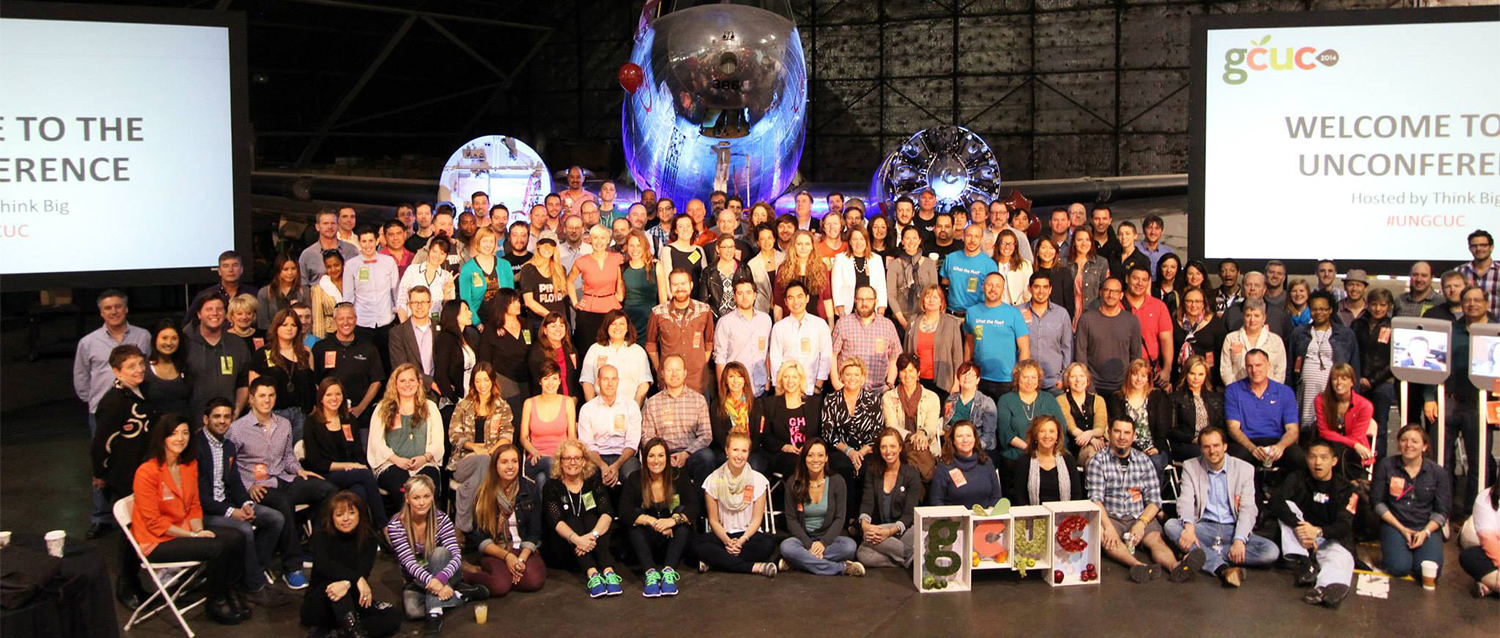
But a fortuitous thing would happen in Kansas City which would define the next chapter of GCUC. While sitting next to two friends, Ashley Proctor, and Brad Krauskopf, at the conference, Liz struck upon an idea. "I knew Brad had already done a conference in Australia and I knew Ashley was thinking about doing one in Canada. So I said, ‘you know, what would be really co of us? Let's work together and do GCUCs around the world. And it just snowballed from there.'"
GCUC now holds annual events in the United States, Canada, Australia, the United Kingdom, and three in China. They also host roving events in Southeast Asia and South America. Future plans include events in India, the Middle East, Africa, Europe and even the Arctic Circle
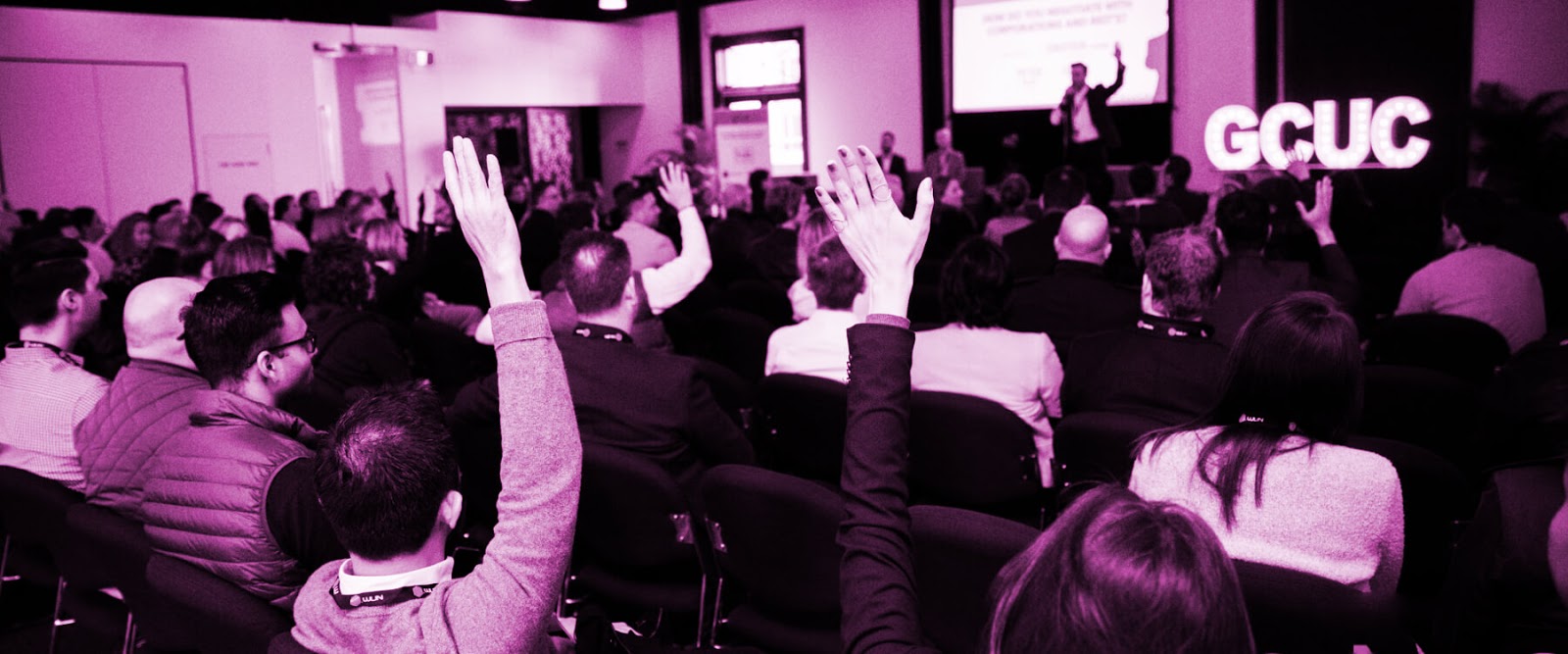
In fact, GCUC USA 2019 is right around the corner. The event will be held in Denver, Colorado, starting April 15th.
The Anatomy of a GCUC
I vividly recall my first time at GCUC, which was in Los Angeles in 2016. Not only was it my first GCUC, but it was also my first coworking conference. The trip was a bit of a Hail Mary for me as I was living in New York City, funemployed, and quickly depleting my meager savings. I couldn't even afford a conference ticket. In short, my prospects weren’t looking great.
Luckily, Liz gave me a pass in exchange for some volunteer work and an article about the conference on the then-newly-minted Coworking Insights. What’s more, I booked the trip months in advance so I couldn’t back out due to money woes.
And I’m so glad I did.
There are few comparisons I can draw to the experience of one's first coworking conference, but it's something like falling in love for the first time. Finally, after months or years of being a bit of a weirdo, you get to meet people who actually understand what it is you do for work and speak your language. You laugh over the ridiculousness of everyday experiences and empathize over shared struggles. You finally get to be yourself. Never before have I felt more connected to total strangers.
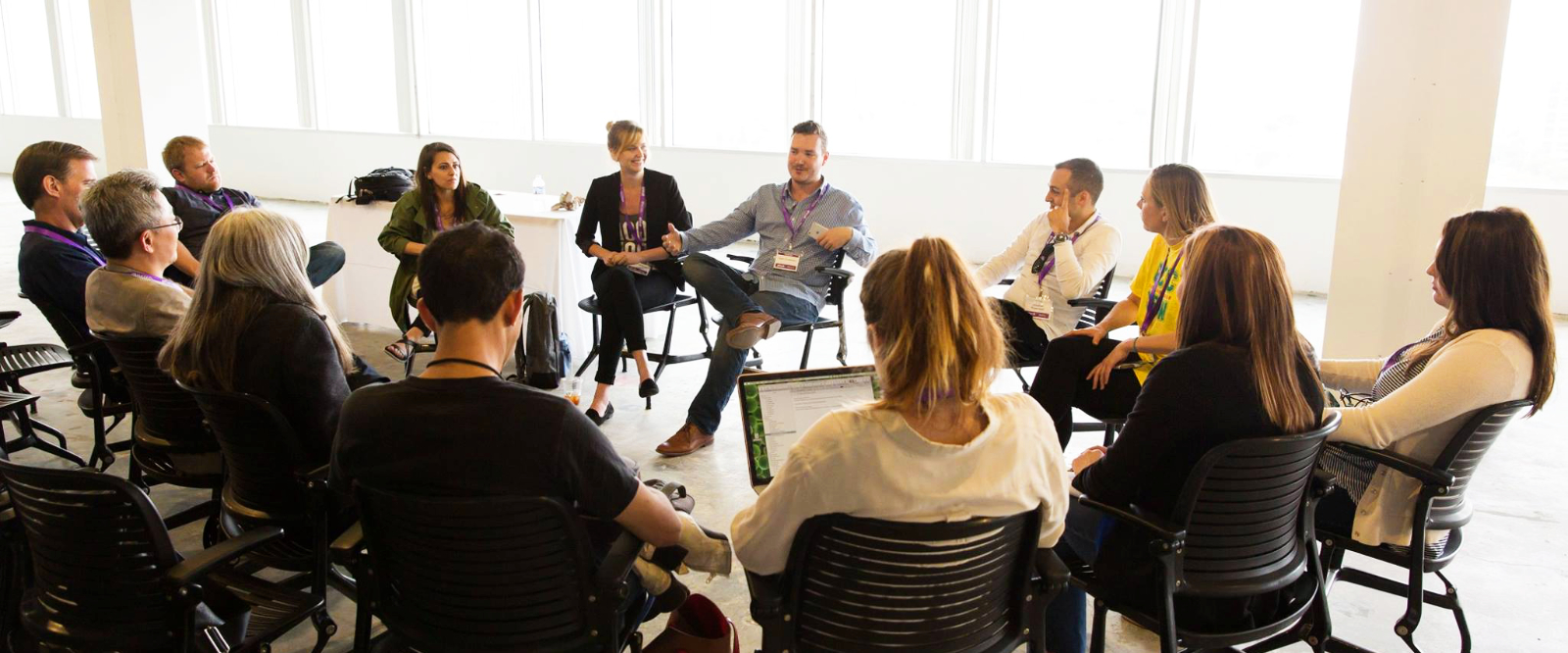
In general, each GCUC has a conference day and an unconference day. After the unconference, there's the always-epic closing party. The last day is reserved for relaxation or an optional coworking city tour, wherein conference-goers bus from space to space to check out some of the greatest coworking communities in the host city.
However, GCUC has changed a lot over the years, from the structure of various parts of the conference to the topics discussed. One of the most significant additions to the structure is Camp GCUC, which was added in 2015.
"One of the things that was happening was that people were feeling lost." Liz says, "You know, on the first day of the actual conference, we go straight into some next level stuff. But some people still need the basics. They need, design, technology, marketing. So we figured out we needed to have a day to bring people up to speed. So now we've got Camp GCUC which gets everybody on the same page before the main event begins."
Another significant change is the shift in conversations. Liz told me that the trend of health and wellness continues, but that there are a couple of newcomers to the discussion this year.
"I don't know if you've been to a hotel lobby lately," Liz says," but more than a few of them look a heck of a lot like coworking spaces. Also, there are now airports that look a heck of a lot like a coworking space. So, how we can take design to the next level is a topic that I'm excited about it. And then based off my own experience, there's a panel on succession planning because I stumbled through it and I want the people behind me to have a better shot at it and to learn from my mistakes."
Succession planning is an exciting topic and not one that gets talked about much. Having a game plan for how you get out of your coworking space business isn’t something most coworking founders think about. Many join for the love, for the community, or because it sounds cool. But few think about an exit strategy.
‘Selling Out’ – Liz Sells Link Coworking to Common Desk
It turns out that Liz didn’t have an exit strategy either.
“I was going to be like everybody else,” Liz says. “I was going to open a hundred spaces across the US, you know? I was going to be retail focused. I still think that could have worked.”
But Liz’s plans changed when she took the torch forward with GCUC. “I saw how important it was to have friends, peers and connections in the industry,” Liz recalled. “So, while I was building Link, I was simultaneously building GCUC.”
Building a colossal coworking chain just wasn't interesting to Liz anymore. Besides, Liz also realized that expanding beyond her neck of the woods wasn't going to be very enjoyable.
Liz continued, "I realized that I wasn't even willing to go to South Austin because of the traffic to open a new Link location. I also watched some of my friends open locations outside of their state and saw how hard it was. I watched Benjamin and fly back and forth to Chicago for his expansion. I talked to him about it, and he's like, ‘yeah, this is really hard.' So I started looking at it, and I decided I didn't want to expand Link anymore. Plus, I didn't think I was going to get that much better as an operator."
That’s when Liz began thinking about selling her space. What’s more, Link Coworking wasn’t in a great place financially, which added to her motivation to sell.
Liz received a low-ball offer from one company. "I really, really considered it, but it didn't work out. And at the time I thought it was such a terrible thing. But it was one of the best things in retrospect because what it did was make me think, ‘okay, you know what you don't do, you don't sell your business when it's not in good shape. You sell it when it is in good shape.’”
So Liz made some financial investments in Link, changed the physical layout, and eventually turned the numbers around. What's more, instead of waiting for a buyer to come along by chance, Liz thought genuinely about who she would be proud to partner with, as well as who would take care of her community.
"And then one day I was at dinner in Austin, Texas," Liz told me, "sitting across from Nick Clark and I'm like, ‘oh my God, perfect. Common Desk. He wants to come to Austin, and I'll get out of coworking in a physical sense.'"
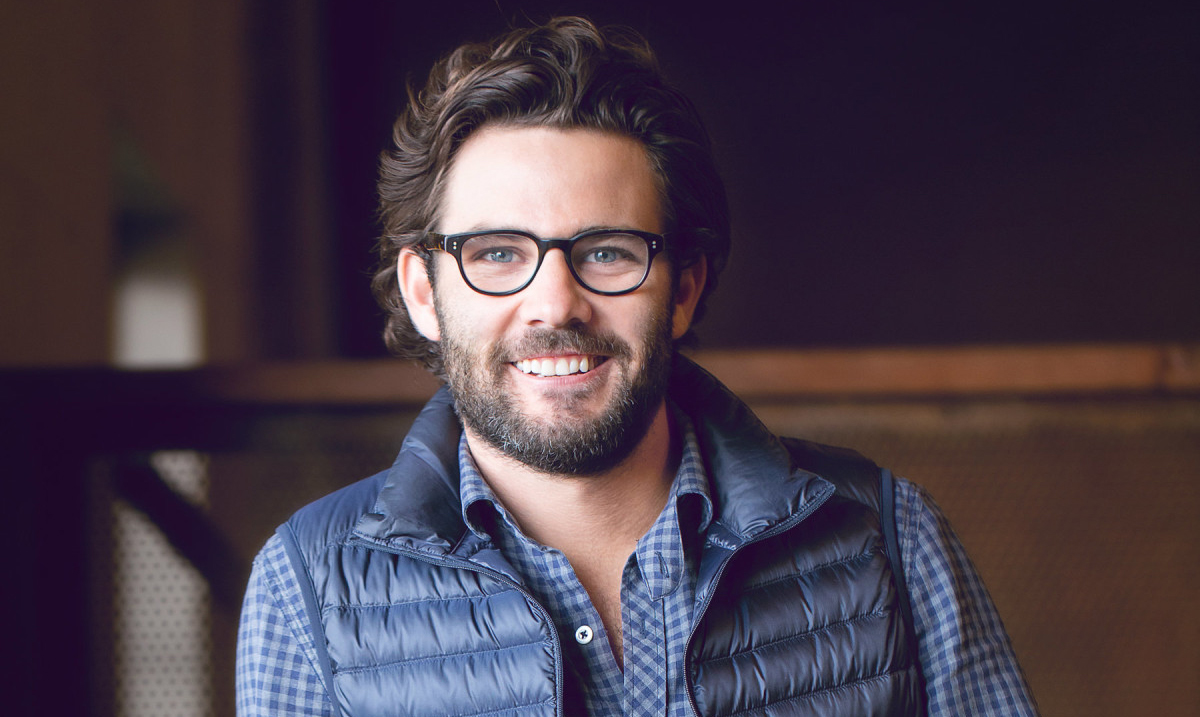
While deals with friends can be tough, Liz said this one was easy. "The funny thing is Nick, and I are friends, and when we started talking about it, I told him a number that I could live with. And he came back with another number. Then I said, well because of this, this, this and this, I would settle on this. And he said, okay. That's how it went down."
But deals aren’t always so easy, which is why I hope that the succession planning discussion at GCUC is one that is continued for years to come.
Too Much Information
Liz and I spoke for over an hour, and there was just too much information to include here. However, before we wrap up, I'd like to share a couple of highlights that didn't fit neatly into the rest of the article.
Liz probably hates your chairs!
I asked Liz about her biggest pet peeves in the coworking industry.
"Chairs!" Liz told me. "You cannot ask a human sit for eight hours in a chair that does not have lumbar support, which is not adjustable, which is not built for the human form. It's cruel and unusual punishment. You tell people by the chair you provide how comfortable you want them to be in your space. That's why Starbucks chairs are rock-freaking-hard because they don't want you to stay. They want you to drink coffee and peace out."
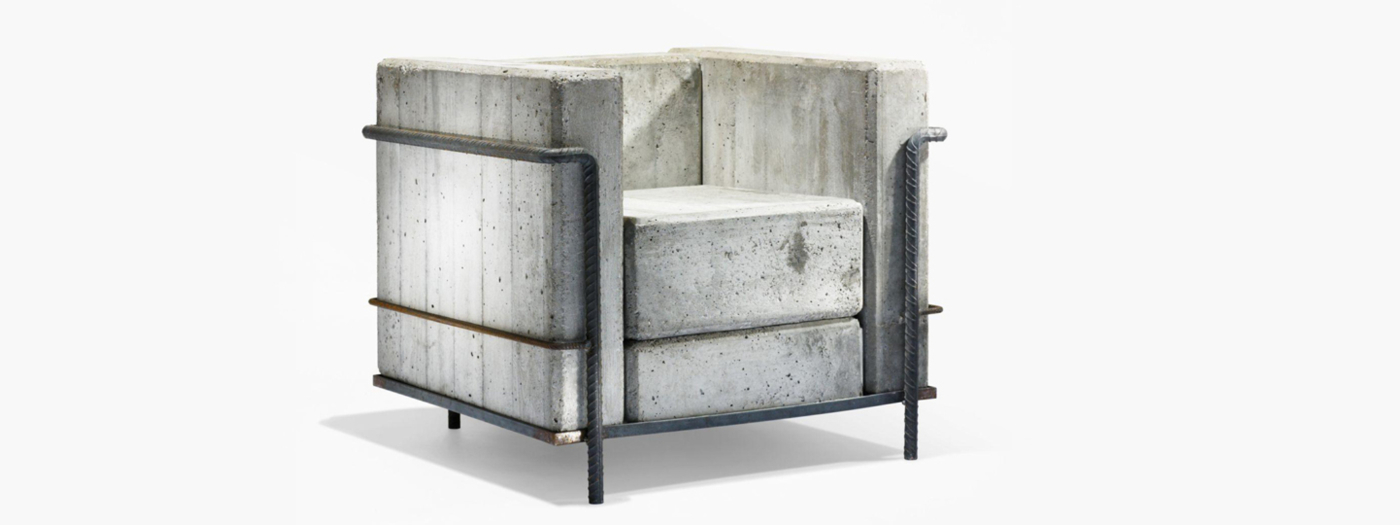
Liz believes in Strategic Giving
Liz and I agree on one of the most underrated strategies in coworking marketing.
"I'm not a big fan of free for nothing," Liz says, "but I'm a big fan of free if you're getting something in return. So I gave these people free use of the conference room, and they were using their social worth to help the visibility of my business. So I like that. Also, I used to buy lunch for my members, which was me just paying a bunch of money for a bunch of food. So we got community out of that. So it was worth every penny. But free for the sake of free? That gets you nothing."
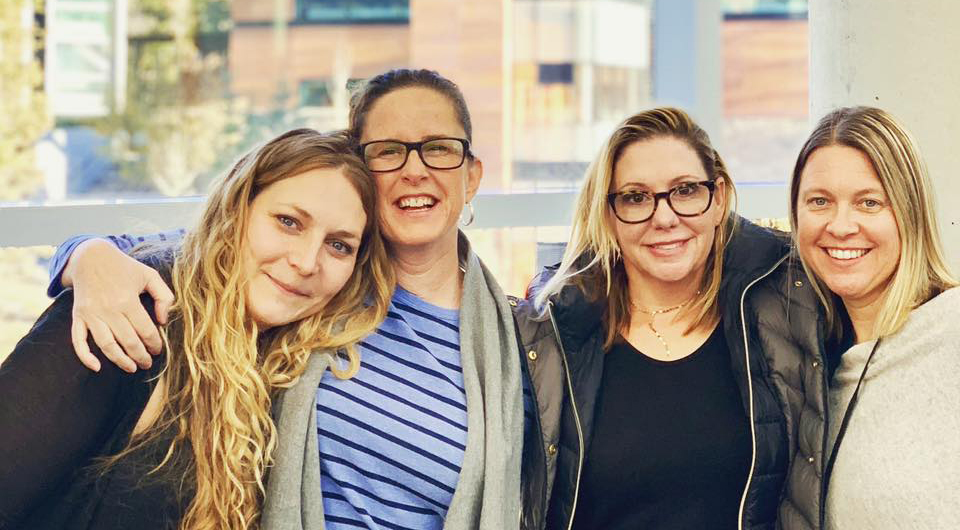
Thanks to Liz Elam for the wonderful conversation and her continued leadership. Also, Liz said we could offer a discount to those late-birds just deciding to attend GCUC USA 2019 in Denver, CO. If you're up for it, send us a message and will hook you up with a discount code!
Marketing Director, founder at Coworking Insights, coworking maven, digital nomad, lover of wine & tacos.



